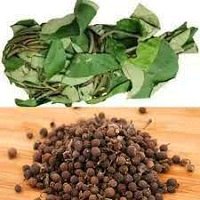Health Benefits of Uziza Leaf and Seed | Nutrition & Uses
Health Benefits of Uziza Leaf and Seed Nutrition & Uses
Amazing Health benefits of Uziza leaf and seed (uziza and pregnancy)
Health benefits of Uziza and uda
uziza Leaf and pregnancy
The side effect of uziza leaf
Uziza seed and uda for fertility
How to use uziza leaf for fertility
Uziza leaf and fibroid
Uziza leaf and honey
How to plant uziza seed
How does uziza impact pregnancy and what are the health benefits of uziza leaf and seeds?
Let’s begin by learning the proper term for uziza.
Uziza leaf is a popular leaf in Nigeria’s eastern region.
It’s a medicinal herb with a long history of use in African traditional medicine.
Uziza is the Igbo name for the plant Piper guineense, which is scientifically known as Piper guineense.
What is Uziza in Yoruba? In Yoruba, it’s called ata iyere
What is the English name for the Uziza leaf?
Piper guineense is sometimes known as West African black pepper or Ashanti pepper.
Uziza soup is a popular dish in Nigeria’s eastern region. Palm nuts are frequently used in the preparation (Banga).
Uziza is an organic spice that can be found in both #afiaefere #Ofensala and #Peppersoup
When making Pepper soup, Afia Efere, Nsala soup, egusi soup, ogbono soup, and other similar dishes. Uziza seed or leaf, also known as Odusa/Etinkeni, is one of the most crucial ingredients on your list.
Because it is a hot spice with a unique flavor and aroma. It can also be used in other delicacies…knowing how much to use is crucial…always keep that in mind, please!
Health Benefits of Uziza Leaf and Seed
Uziza is high in roughages, which might aid with stomach pains and menstrual cramps.
It also aids a person who has been having trouble having bowel movements for a few days due to a lack of dietary fiber.
Uziza spice is high in dietary fiber, which aids in constipation prevention.
About uziza leaf and seed
Uziza, commonly known as Guinean pepper, is a black pepper cousin. When compared to the common black pepper we use in our cooking, uziza has a more herbaceous flavor. What’s more, this African plant not only produces spices in the form of fruits and seeds but also has health-promoting leaves.
Uziza is an African plant that has two parts that are used: the leaves and the SEED (berries). The spicy leaves are pale green while fresh, darker green when frozen, dried, or powdered, and have a peppery flavor.
Soups are made with the leaves, whole or crushed. Normally, the fresh leaves are washed and shredded before use.
Fresh leaves are available frozen in North America and food stores but it’s grown in Nigeria and other West African countries
The nutritional content of uziza leaves and seeds
Uziza leaves contain:
Protein
Dietary fiber
Alkaloids
Glycosides
Flavonoids
Essential oils
Tannins
Saponins
Phenols
The chemical piperine, which gives the leaves their flavoring taste, is found in 5–8% of the leaves.
They also contain a lot of beta-caryophyllene, an anti-inflammatory compound.
It also includes significant levels of myristicin, elemicin, safrole, and dillapiol, as well as a small quantity of apiole, all of which are health-promoting compounds.
Uziza leaf and seed health benefits
The health benefits of uziza leaves and seeds are compatible with black pepper’s health benefits. The uziza leaves are pale green when young and darken as they age.
The nutritional value of uziza leaves is the source of the leaves’ health advantages.
According to certain studies, this Nigerian superfood is high in vitamins and minerals. Some of the health advantages of uziza leaves and seeds are as follows:
Fertility treatment
Anti-cancer
Treats intestinal disorders.
Lower cholesterol
Treat rheumatism
lowers blood sugar/good for diabetic
hypertension
lowers blood pressure/prevent
Aid postpartum recovery
Improve appetite
Treat dysentery/diarrhea
Ease indigestion
Natural insecticides/repels insects
Lose weight
Pain relieves
Treats constipation
Improves fertility especially ovulation
Relieves stomach pain
Health Benefits of Uziza Leaf and Seed | Uses of Uziza Leaves and seed
The leaves and seeds of the Uziza plant are utilized for both medical and nutritional purposes. The leaves are widely taken as a tea for medical purposes.
The health benefits of uziza leaf and seed can also be obtained by boiling the fresh leaves and drinking the water as herbal tea. Alternatively, the leaves are frequently crushed and capsuled as daily health supplement capsules.
For nutritional purposes, you can add fresh or dried leaves to your soup to enhance the flavor as well as nutritional content. You can also add dried and crushed uziza leaves to your salad as a garnish. Otherwise, fresh uziza leaves can be stir-fried or added to a green salad.
UZIZA leaf and seed should be advised for all types of soups in all tribes if at all possible. Use this to get the most delicious soup experience you’ve ever had… You’ll thank me later.
Uziza leaf and honey: How to Combine Uziza Leaves, Honey, and Hot Water to Treat These Men and Women’s Diseases
How to prepare the mixture:
Firstly, blend or boil the Uziza leaves to extract the water, and then stir in a spoonful of honey, and finally, drink for seven nights.
It helps with –
1: Cough relief:
2: Constipation prevention:
3: Cancer prevention:
4: Diarrhea treatment
5: Fertility enhancement
6: Stomach discomfort remedy:
Health Benefits of Uziza Leaf and Seed
Uziza is safe to use throughout pregnancy. There is no evidence that uziza is dangerous to pregnant women or their unborn children based on scientific evidence. Pregnant women can thus eat uziza leaf, seed, or root delicacies without worry about adverse effects
Consumption in excess might cause diarrhea, stomach discomfort, and heartburn. It is not recommended for people with low blood sugar levels since it may cause them to become hypoglycemic.








